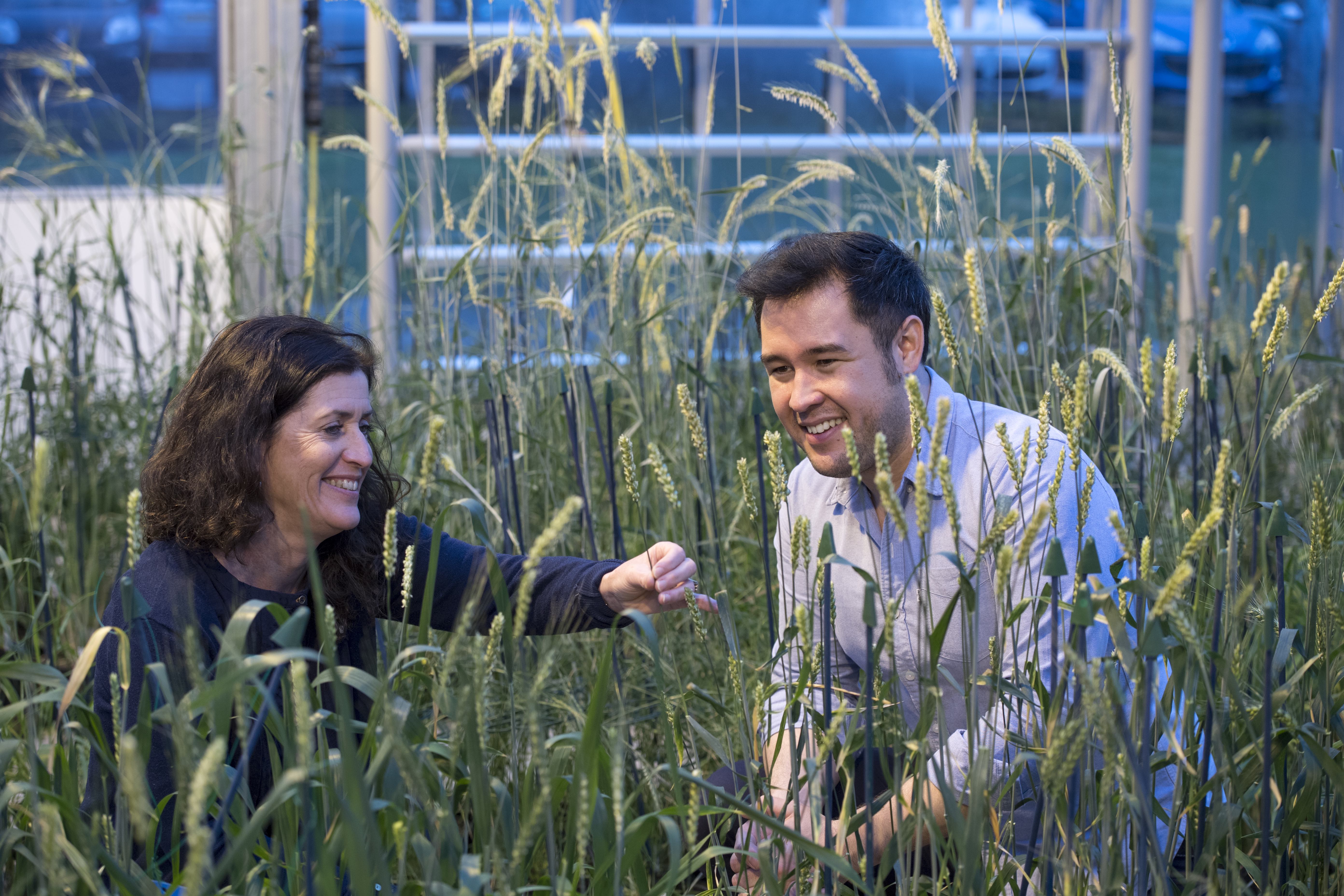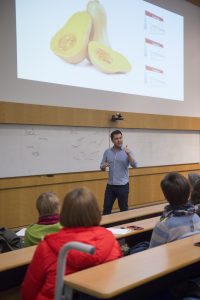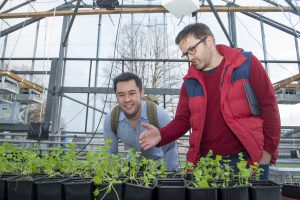
December 14, 2017, by jicke
Botany geek impressed by world-leading plant science
Botanist and BBC Broadcaster James Wong paid a visit to Sutton Bonington Campus yesterday where he spent time finding out about the research taking place there, before rounding his day off giving an entertaining talk to a packed audience.
Straight-talking guide
James delivered a scientist’s straight-talking guide to making everyday foods healthier and tastier simply by changing the way you select, store and cook them. Based on his latest book ‘How to Eat Better’, he explained how to make real food better without fad diets and obscure ingredients, providing information based on the latest scientific evidence from around the world.
Impressive research
As well as impressing the audience with his insights, James was impressed by the research taking place within the School of Biosciences and tweeted: “As you might be able to tell, totally inspired by the amazing plants and nutritional science geeks at Nottingham Uni.” #ScienceGeeksUnite
James relished hearing from the country’s leading plant, food and animal experts and was very interested in research into how different coloured grow lights can manipulate the flavour chemistry of herbs. He was especially interested in this in relation to one herb he particularly dislikes, joking on twitter: “Who knows maybe one day they’ll create a coriander that actually tastes good? I’d personally ensure they get a Nobel prize for that.”
He also visited the Wheat Research Centre where research is underway to find new varieties of high yielding wheat that can cope with climate change and feed a growing global population. Commenting on the work there he said: “At Nottingham Uni @Notts_WRC are working with an international team of science geeks in a epic race to ensure wheat yields keep up with population growth. That means painstakingly making 25,000 hand-pollinated hybrids in this one lab alone.”
The event was organised by Dr Sarah Ellis, and coordinated by Dr Susannah Lydon, Outreach Officer and Admissions Tutor for the Plant Science BSc programme. All proceeds from the event and royalties from sales of his book are going to UNICEF to help fight hunger.
No comments yet, fill out a comment to be the first



Leave a Reply